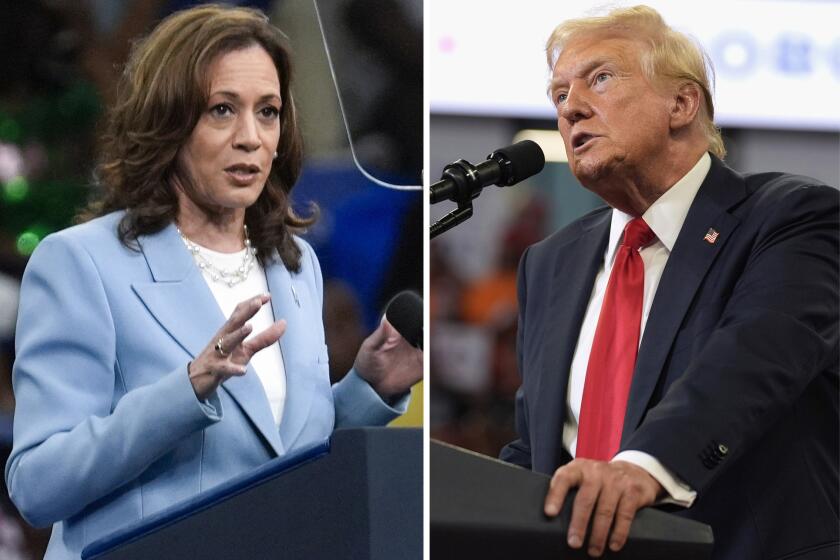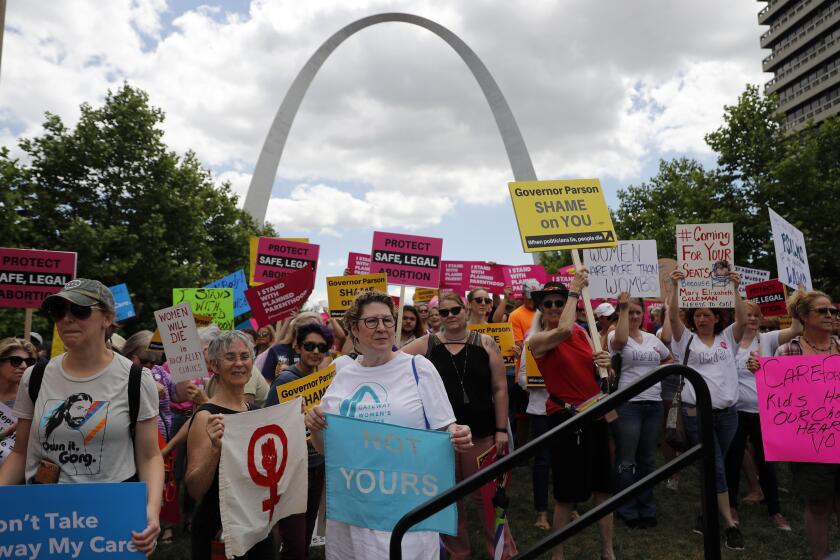House Revives Bankruptcy Bill
The House voted early today to revive a decade-long effort to rewrite the U.S. bankruptcy code, passing legislation that would make it harder for people to discharge their debts by declaring themselves insolvent.
Reversing a decision made only hours earlier, the House voted 244 to 116 to approve the bankruptcy overhaul and send it to the Senate for consideration in the waning days of the lame-duck congressional session.
The Senate is expected to approve the measure and President Bush is expected to sign it, congressional sources said.
The bill, which had been voted down 240 to 175 and left for dead Thursday afternoon, was brought back to life by means of an unusual parliamentary maneuver that drew loud objections from some Democratic lawmakers.
“Now that the bill is dead, you vote to pass it,” said Rep. Barney Frank (D-Mass.), calling it “the most transparently cynical legislative maneuver I have ever seen.”
In the earlier vote, abortion opponents and consumer advocates had teamed to overpower credit card companies and their allies in the Republican leadership.
The approval of the bill was a big victory for banks and other financial interests that have been pushing to curb increases in personal bankruptcy filings.
The vote also was a triumph for House GOP leaders, who were able to repair a rift with pro-business lawmakers who favored the measure’s broad provisions and social conservatives who opposed its abortion-related language.
In the initial showdown the bill was brought down by a provision that was aimed at restricting antiabortion activists from using bankruptcy proceedings to avoid paying court judgments and fines arising from protests at abortion clinics.
The provision was added to the bill earlier this year at the insistence of Sen. Charles E. Schumer (D-N.Y.), a strong supporter of abortion rights.
Opponents said the provision would have limited 1st Amendment protections for abortion foes, placing them in a different category from other social activists by exposing them to big financial liabilities for their actions.
“We’re condemning peaceful, innocent people who ... try to save the life of an unborn child to a life of financial ruin,” said Rep. Joseph R. Pitts (R-Pa.).
Consumer advocates characterized the bill as a gift to financial services firms that showered Congress with political contributions.
Critics said the bill would impose undue hardship on financially strapped people who are already struggling in the weak economy.
Republican leaders attributed the earlier vote against the bill to an intense lobbying campaign mounted by antiabortion groups, which jammed congressional switchboards in the hours before Thursday’s vote.
“People have been calling us all day, saying don’t do it,” said John Feehery, spokesman for House Speaker J. Dennis Hastert (R-Ill.)
Almost forgotten in the jockeying over the abortion issue was the core of the bill, which represented an effort to stem a steep rise in individual bankruptcy filings over the last decade. A record 1.45 million bankruptcies were filed in 2001, up 14% from the previous year.
Creditors say some of that increase represents an abuse of the bankruptcy code by people who file under Chapter 7 of the code simply to unload their debts, even though they could afford to repay at least some of them.
To discourage that practice, the bill would force more people to file under the code’s Chapter 13, which requires debtors to work out repayment plans for at least part of their debts. The bill would have established a “means test” to determine who qualifies for a Chapter 7 filing.
Another provision was designed to close a controversial legal loophole that allows bankruptcy filers in several states to keep expensive homes. The bill would limit the so-called homestead exemption for felons and others convicted of financial misdeeds.
The eleventh-hour dispute over abortion was just the latest snag in what has been a tortuous legislative journey for the bankruptcy measure.
A similar bill almost became law two years ago, but President Clinton exercised a pocket veto by leaving it unsigned while Congress was out of town. Different versions of the bill whizzed through the House and Senate after Republicans took control of both chambers following the 2000 elections. But after Democrats seized control of the Senate in mid-2001, negotiations to reconcile the differing versions stalled.
Finally, the bill moved to the brink of approval in July when House-Senate conferees reached agreement on compromise language for the abortion provision. The compromise applied the prohibition on use of bankruptcy proceedings to anyone trying to avoid a fine for blocking any legitimate business. Bankruptcy could still be filed by those facing other court fines.
That accord was endorsed by Rep. Henry J. Hyde (R-Ill.), a longtime leader of antiabortion forces. But others continued to vehemently oppose the provision, saying it remained aimed mainly at antiabortion activists.
That presented GOP House leaders with a quandary. While the antiabortion forces are important to their political base, the bill was fervently supported by another important faction: banking and business interests. Rather than opening that rift as the midterm campaign was about to kick into high gear, the leaders put off action on the bill until the lame-duck, postelection session.
More to Read
Get the L.A. Times Politics newsletter
Deeply reported insights into legislation, politics and policy from Sacramento, Washington and beyond. In your inbox three times per week.
You may occasionally receive promotional content from the Los Angeles Times.







